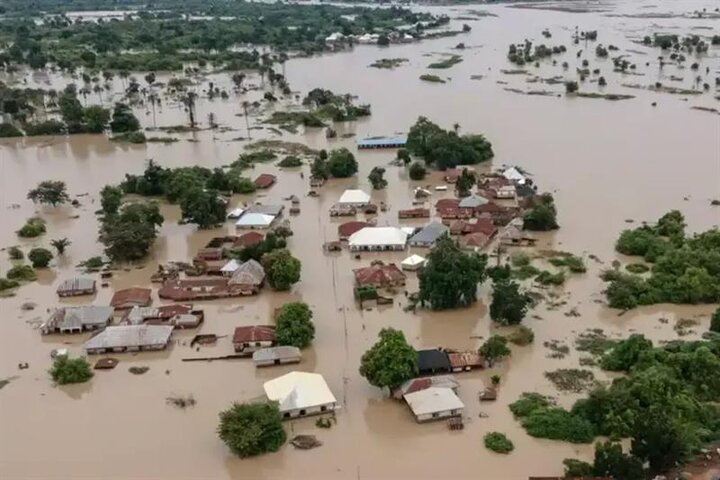Tragic flooding in Nigeria’s central west has left at least 115 people dead, with search-and-rescue operations ongoing amid fears the casualty count will rise. President Bola Tinubu confirmed the disaster on Saturday, emphasizing swift government response.
From late Wednesday into early Thursday, relentless downpours triggered severe flash floods in and around Mokwa, a town near the Niger River in Niger State. Entire neighborhoods were submerged, homes swept away, and many victims’ bodies were carried downstream, complicating recovery efforts.
Ibrahim Audu Husseini, spokesperson for the Niger State Emergency Management Agency (NSEMA), explained that numerous bodies remain trapped beneath collapsed structures, and heavy equipment will be required to safely recover them. Families continue to search desperately for missing relatives — with one family of twelve having only four members accounted for so far.
In a social media update, President Tinubu announced that security forces have been deployed to assist emergency responders, while relief supplies and temporary shelters are being delivered urgently. The National Emergency Management Agency (NEMA), Nigerian Red Cross, military, police, and local volunteers are all actively engaged in the relief efforts.
Widespread Destruction and Human Loss
The floods have caused widespread devastation: many buildings have collapsed and roads remain submerged, hindering rescue operations. At least 78 people have been hospitalized with flood-related injuries, and thousands have been displaced from their homes.
More than 5,000 people are reported homeless following the disaster, while over 50 children from a local Islamic school are missing. Additionally, two major bridges in Mokwa were destroyed by the floodwaters.
Among the heartbreak, civil servant Mohammed Tanko, 29, mourned the loss of 15 family members and his childhood home. Meanwhile, yam vendor Sabuwar Bala recounted narrowly escaping the floodwaters, left with nothing but the clothes she wore.
Climate Change and Infrastructure Failures Amplify Risk
Nigeria’s rainy season, which typically lasts six months, is still in its early stages. Yet, each year, heavy rains, poor drainage systems, unregulated building on waterways, and blocked channels worsen flooding risks.
Experts warn that climate change is intensifying the frequency and severity of such extreme weather events. NEMA emphasized the importance of keeping drainage channels clear and maintaining river pathways to mitigate future disasters, noting that waste dumping exacerbates flood impacts.
Flood Alerts and Future Concerns
The Nigerian Meteorological Agency had issued flood warnings for 15 states, including Niger State, just before the disaster struck.
Last year’s flooding across Nigeria claimed over 1,200 lives and displaced 1.2 million people, marking one of the country’s most severe flood seasons in decades.
With thousands displaced and children playing near contaminated floodwaters, there is a growing concern about the spread of waterborne diseases in the affected communities.

